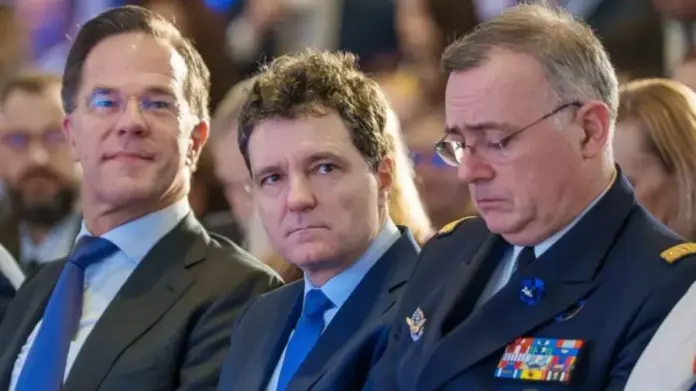Bucharest hosted the NATO–Industry Forum 2025 — the Alliance’s main dialogue platform with the defense industry — on November 5–6, 2025. The event, held every two years, brought together political, military, and economic leaders from NATO member and partner countries to discuss the rapid pace of rearmament and adaptation to new warfare challenges. The forum’s theme, “NATO Rearmament: Innovate, Accelerate, Sustain,” underscored a clear strategic message for the Black Sea region, including the Republic of Moldova.
Romanian President Nicusor Dan emphasized that NATO and its allies must act decisively to ensure peace and deter aggression.
“All the threats and challenges we face — from the war in Crimea to cyberattacks and hybrid warfare — remind us that peace and security are never guaranteed. Rearmament is not a choice but a necessity. It represents a shared need among all Allied nations. The Alliance protects peace, while our responsibility is to deter aggression and ensure that our armed forces remain capable and well-prepared to counter threats. Russia’s illegal war against Ukraine continues at Romania’s border. For Romania, for our Eastern flank allies, and for NATO as a whole, Russia’s aggressiveness — manifested through airspace violations and intensified hybrid attacks — proves that we must stay ready,” President Dan declared.
He noted that Romania aims to strengthen military mobility along the North–South axis of the Eastern Flank, as part of a coherent and integrated approach from the Baltic Sea to the Black Sea, designed to reinforce critical infrastructure such as railways and ports on the Black Sea and the Danube.
“Romania is ready to assume a strong role on the Eastern Flank,” Dan reaffirmed.
His remarks indirectly highlighted the security risks that Moldova faces due to Russia’s hybrid actions and emphasized that the North–South axis plan could enhance regional connectivity and dual-use infrastructure near Moldova. Romania’s readiness to strengthen its Eastern Flank role positions it as a regional security guarantor, sending a reassuring signal to non-NATO partners in the region.
NATO Secretary General Mark Rutte praised Romania’s plan to raise its defense budget to 3.5% of GDP by 2030, recalling the Hague Summit commitment, where NATO leaders agreed to invest 5% of GDP in defense by 2035.
“But money alone does not bring security. We must invest in advanced technology and innovation. Russia’s war against Ukraine remains the clearest threat, but the danger will persist beyond this conflict. Russia will continue to act as a destabilizing force, and its cooperation with China, North Korea, Iran, and others to strengthen their defense industries proves it is preparing for a long-term confrontation. We must stay realistic and prepared,” Rutte warned.
The NATO Secretary General urged the defense industry to focus on three priorities: quantity, creativity, and cooperation.
“In terms of quantity, we already possess advanced systems, but we need more of them, faster — through increased production and rapid delivery. Creativity requires innovation — we rely on your ideas, from major corporations to startups. NATO provides the framework for testing through the DIANA Innovation Accelerator and the NATO Innovation Fund, the world’s first multi-sovereign venture capital fund. Cooperation remains the essence of NATO — bringing together ideas, resources, and industries from 32 nations gives us tremendous strength,” Rutte explained.
Admiral Pierre Vandier, NATO’s Supreme Allied Commander Transformation (SACT), reinforced the Secretary General’s message, stressing that the Alliance must adapt to new realities.
“Today, the logic of brute force, ruthless competition, and predatory behavior has returned. We see actors willing to discard the rules, with broad access to new technologies and constantly updated weapons,” Vandier stated.
He emphasized that practical experimentation must guide NATO’s transformation.
“We bring together industry, innovators, and the military to understand what comes next — we must stay grounded in reality through a bottom-up approach,” he said.
Vandier also called for a rational, science-based perspective.
“We must apply logical thinking to an expanding technological landscape, align it with available resources and missions, and leverage industrial expertise and nonprofit experience in mission engineering. Technology must serve as a tool to achieve our objectives through modeling and simulation,” he added.
“All these ingredients combine to give life to new tactics and concepts that enable the 32 allied nations to fight as one. This is what we are doing with multidomain operations or with the developing concept of cognitive warfare. It is also part of our efforts to digitally transform NATO, designed to enable the competent use of connectivity and artificial intelligence,” Admiral Vandier pointed out.
His statement also served as a warning for the Republic of Moldova, emphasizing the need to strengthen digital resilience, cyber infrastructure, and cooperation with NATO partners.
NATO last held the NATO–Industry Forum in Stockholm in 2023.


